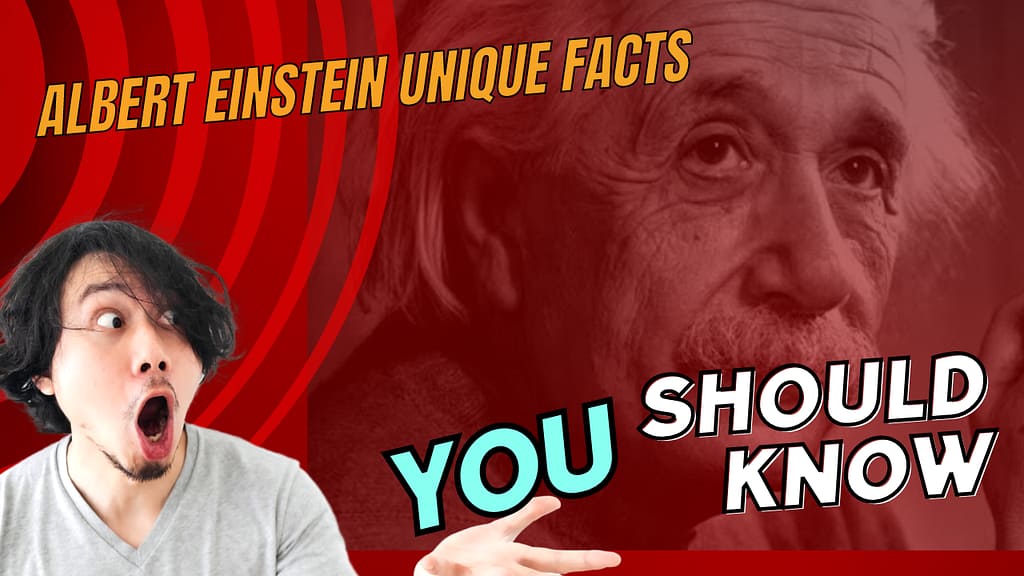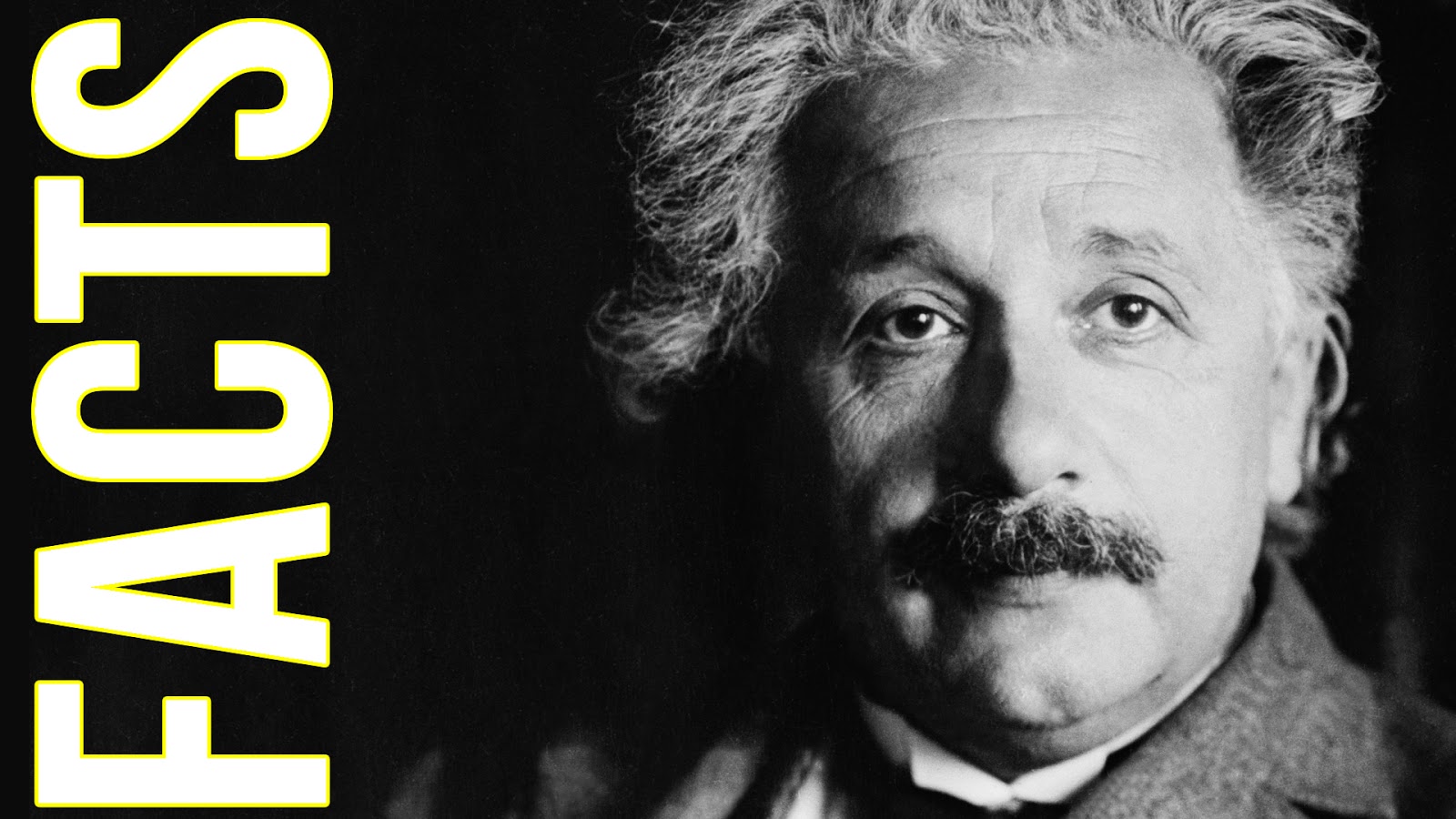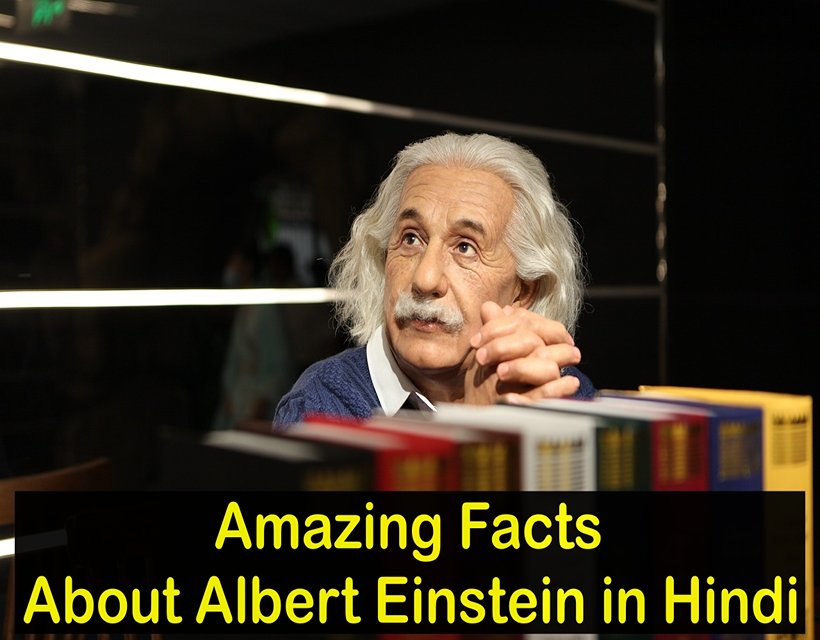The Profound Genius: Astonishing Facts About Albert Einstein
Did you know that Albert Einstein, the renowned physicist, had a peculiar habit of sticking out his tongue and making funny faces?
Albert Einstein, widely regarded as one of the greatest minds of all time, left an indelible mark on the world of science and beyond. His groundbreaking theories revolutionized our understanding of the universe, and his life was filled with fascinating and lesser-known facts that continue to intrigue us today.
In this article, we will delve into some of the most amazing facts about Albert Einstein, exploring his brilliant mind, eccentricities, and the lasting impact he has had on our world.
| Birth Name | Albert Einstein |
|---|---|
| Birth Date | March 14, 1879 |
| Birth Place | Ulm, Germany |
| Death Date | April 18, 1955 |
| Death Place | Princeton, New Jersey, U.S. |
| Nationality | German, Swiss, American |
| Field | Theoretical physicist |
| Famous For | Theory of relativity, mass-energy equivalence (E=mc^2) |
Albert Einstein's Amazing Facts
Education and Early Life
Einstein's journey to becoming a renowned physicist began with humble beginnings. He struggled with traditional education methods and was often considered a slow learner. However, his insatiable curiosity and independent thinking led him to make groundbreaking discoveries later in life.
Theory of Relativity and Its Impact
Einstein's groundbreaking theory of relativity revolutionized our understanding of space, time, and gravity. His special theory of relativity, published in 1905, introduced the famous equation E=mc^2, which demonstrated the equivalence of mass and energy.
The Photoelectric Effect and Nobel Prize
In 1905, Einstein published a paper on the photoelectric effect, which earned him the Nobel Prize in Physics in 1921. This work laid the foundation for quantum theory and had significant implications for the development of electronics and solar energy.
Eccentricities and Personal Life
Beyond his scientific genius, Einstein was known for his eccentricities and unconventional personal life. He was absent-minded, often forgetful, and had a mischievous sense of humor. He enjoyed playing the violin and sailing.
Legacy and Influence
Einstein's legacy extends far beyond his scientific contributions. He became a symbol of intellectual curiosity, independent thinking, and the pursuit of knowledge. His work continues to inspire and influence scientists, philosophers, and people worldwide.
Albert Einstein
Albert Einstein, the renowned physicist, left an indelible mark on the world with his groundbreaking theories and fascinating personal life. Here are six key aspects that highlight the amazing facts about Albert Einstein:
- Genius Mind: Einstein's exceptional intellect led to groundbreaking discoveries in physics, including the theory of relativity.
- E=mc: His famous equation revolutionized our understanding of mass and energy equivalence.
- Nobel Laureate: Einstein received the Nobel Prize in Physics in 1921 for his work on the photoelectric effect.
- Eccentric Personality: Known for his absent-mindedness, forgetfulness, and mischievous sense of humor.
- Violin Virtuoso: Einstein was an accomplished violinist and enjoyed playing music.
- Global Icon: Beyond his scientific contributions, Einstein became a symbol of intellectual curiosity and independent thinking.
These key aspects offer a glimpse into the brilliance, eccentricities, and lasting impact of Albert Einstein. His theories continue to shape our understanding of the universe, while his personal qualities inspire us to embrace curiosity, creativity, and the pursuit of knowledge.
| Birth Name | Albert Einstein |
|---|---|
| Birth Date | March 14, 1879 |
| Birth Place | Ulm, Germany |
| Death Date | April 18, 1955 |
| Death Place | Princeton, New Jersey, U.S. |
| Nationality | German, Swiss, American |
| Field | Theoretical physicist |
| Famous For | Theory of relativity, mass-energy equivalence (E=mc^2) |
Genius Mind
Albert Einstein's exceptional intellect manifested in his groundbreaking discoveries in physics, most notably his theory of relativity. This theory revolutionized our understanding of space, time, and gravity, forever changing the course of scientific thought.
- Conceptual Genius: Einstein's ability to visualize complex concepts and think abstractly allowed him to develop groundbreaking theories that challenged existing paradigms.
- Mathematical Prowess: Einstein's mathematical skills were instrumental in formulating his theories. He used advanced mathematics to describe the laws of physics with remarkable accuracy.
- Experimental Ingenuity: Despite being primarily a theoretical physicist, Einstein also possessed experimental ingenuity. He designed experiments to test his theories and confirm their validity.
- Tenacious Perseverance: Einstein's unwavering determination and resilience were crucial in overcoming the challenges and skepticism that came with introducing groundbreaking ideas.
These facets of Einstein's genius mind not only contributed to his remarkable discoveries but also left a lasting impact on the field of physics and our understanding of the universe.
E=mc
Einstein's famous equation, E=mc, is a cornerstone of modern physics. It encapsulates the profound connection between mass and energy, revealing that they are interchangeable and that even a small amount of mass can be converted into a vast amount of energy.
The significance of E=mc extends beyond its theoretical implications. It has practical applications in various fields, including:
- Nuclear Energy: The equation provides the theoretical basis for nuclear power and nuclear weapons, demonstrating the enormous energy that can be released from nuclear reactions.
- Particle Physics: E=mc is essential in understanding the behavior of subatomic particles and the interactions between them.
- Cosmology: The equation plays a crucial role in explaining the evolution of the universe, including the formation of stars and galaxies.
E=mc not only revolutionized our understanding of the universe but also had a profound impact on technology and society. It is a testament to Einstein's brilliance and the enduring power of his scientific legacy.
Nobel Laureate
Albert Einstein's Nobel Prize in Physics stands as a testament to his groundbreaking contributions to the field. The photoelectric effect, which Einstein elucidated in his 1905 paper, revolutionized our understanding of the interaction between light and matter.
Einstein's work on the photoelectric effect had profound implications for the development of quantum theory. It demonstrated that light, traditionally viewed as a wave, also exhibits particle-like properties, a concept known as wave-particle duality.
The practical applications of Einstein's discovery are immense. The photoelectric effect is the underlying principle behind many modern technologies, including solar cells, photodiodes, and light detectors.
Beyond its scientific and technological significance, Einstein's Nobel Prize serves as a reminder of the power of curiosity and the pursuit of knowledge. It highlights the importance of recognizing and celebrating scientific breakthroughs that advance our understanding of the universe.
Eccentric Personality
Albert Einstein's eccentric personality often manifested in his absent-mindedness, forgetfulness, and mischievous sense of humor. These traits, while sometimes amusing, also shed light on his unique thought processes and creative genius.
- Absent-mindedness and Forgetfulness: Einstein was known for his preoccupation with scientific problems, which often led him to forget everyday matters. His absent-mindedness became legendary, contributing to his image as a lovable and somewhat whimsical figure.
- Mischievous Sense of Humor: Despite his serious scientific pursuits, Einstein had a playful side. He enjoyed intellectual games, riddles, and practical jokes. His humor often extended to his scientific work, as evidenced by his tongue-in-cheek comments and thought experiments.
Einstein's eccentric personality was not merely a curiosity but an integral part of his creative process. His ability to detach himself from conventional and embrace unconventional perspectives allowed him to make groundbreaking scientific discoveries.
Violin Virtuoso
Beyond his scientific genius, Albert Einstein was also an accomplished violinist and derived great pleasure from playing music. This facet of his life offers unique insights into his character and creative process:
- Solace and Inspiration: Music provided Einstein with solace and inspiration, offering a respite from his intense scientific work. Playing the violin allowed him to relax, recharge, and access different parts of his mind.
- Enhanced Creativity: Some researchers believe that Einstein's musical pursuits enhanced his creativity in physics. Music involves complex patterns and structures, which may have influenced his approach to problem-solving and theory development.
- Emotional Expression: Music allowed Einstein to express emotions that were difficult to convey through words. His violin playing could be both deeply personal and profoundly moving.
- Social Connection: Einstein enjoyed playing chamber music with friends and colleagues. These gatherings provided opportunities for intellectual stimulation, camaraderie, and shared experiences.
Einstein's passion for music not only enriched his personal life but also influenced his scientific thinking. It serves as a reminder that creativity and innovation can arise from diverse sources and that pursuing one's passions can have profound benefits.
Global Icon
Albert Einstein's iconic status extends far beyond his scientific achievements. He became a global symbol of intellectual curiosity, independent thinking, and the pursuit of knowledge.
- Inspiring Generations: Einstein's relentless pursuit of knowledge and his ability to challenge conventional wisdom inspired generations of scientists, thinkers, and individuals worldwide.
- Embodiment of Curiosity: Einstein's insatiable curiosity and his willingness to question established norms made him an embodiment of the spirit of inquiry and discovery.
- Champion of Independent Thinking: Einstein's emphasis on independent thinking and critical analysis encouraged others to question authority and seek evidence-based knowledge.
- Symbol of Intellectual Courage: Einstein's unwavering commitment to his beliefs, even in the face of adversity, made him a symbol of intellectual courage and resilience.
Einstein's legacy as a global icon lies in his ability to transcend scientific boundaries and captivate the imagination of people worldwide. He became a symbol of the human quest for knowledge, the power of independent thinking, and the transformative potential of intellectual curiosity.
Frequently Asked Questions about Albert Einstein's Amazing Facts
This section addresses common questions and misconceptions surrounding Albert Einstein's life and contributions.
Question 1: Did Albert Einstein really fail math in school?
Contrary to popular belief, Albert Einstein excelled in mathematics and physics throughout his academic career. He demonstrated exceptional mathematical abilities from a young age.
Question 2: Was Albert Einstein a pacifist?
While Einstein is often associated with pacifism, his views on war and violence were more nuanced. He initially opposed war but later supported the Allied cause during World War II, believing it was necessary to combat the rise of fascism.
In conclusion, these FAQs provide clarification and dispel common misconceptions about Albert Einstein's life and work. Understanding these nuances offers a more comprehensive and accurate view of his contributions and legacy.
Conclusion
Albert Einstein's life and work continue to captivate and inspire generations. His groundbreaking theories revolutionized our understanding of the universe, while his personal qualities embody the spirit of intellectual curiosity and independent thinking.
Through his amazing facts, Einstein challenged conventional wisdom, pushed the boundaries of knowledge, and left an indelible mark on science and society. His legacy serves as a testament to the transformative power of human ingenuity and the enduring quest for knowledge.
- Zahn Mcclarnon Kids
- Sara Haines Twin
- Masa 49 Mms
- Joe Cole Actor Partner
- Rachel Weisz Plastic Surgery 2024

Top 12+ Albert Einstein Unique Facts

Interesting Facts About Albert Einstein Einstein facts Looking for

Top 150+ Amazing Facts About Albert Einstein in Hindi